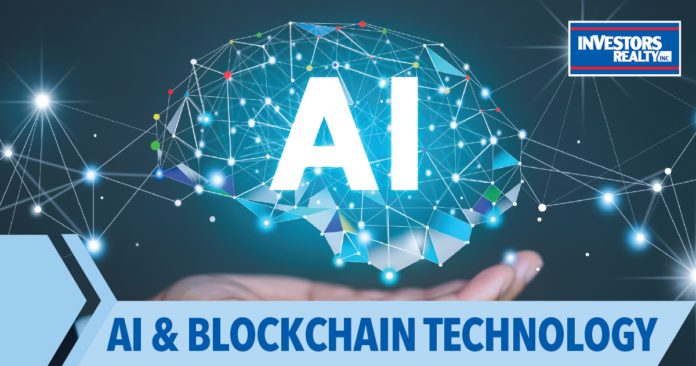In recent years, technological advancements have drastically transformed various industries, and real estate is no exception. Two technologies that are particularly making waves in the real estate sector are Artificial Intelligence (AI) and Blockchain. As we move into 2024, these technologies are poised to revolutionize real estate transactions, offering enhanced security, efficiency, and transparency. This article delves into how AI and Blockchain are reshaping the real estate landscape and what it means for buyers, sellers, and investors.
The Role of AI in Real Estate
Artificial Intelligence is becoming an integral part of the real estate industry, providing a range of solutions that streamline processes and enhance decision-making. Here are some key ways AI is making an impact:
1. Property Valuation and Market Analysis
AI algorithms can analyze vast amounts of data to provide accurate property valuations and market forecasts. This includes assessing current market trends, historical data, and economic indicators to predict future property values. This information is invaluable for both buyers and sellers, helping them make informed decisions.
2. Predictive Analytics
By analyzing patterns in consumer behavior and market trends, AI can predict future real estate market movements. This predictive capability helps investors identify lucrative investment opportunities and optimize their portfolios.
3. Enhanced Customer Service
AI-powered chatbots and virtual assistants provide instant responses to customer inquiries, improving the overall customer experience. These tools can answer questions, schedule property viewings, and provide personalized property recommendations based on user preferences.
4. Risk Management
AI systems can assess risks associated with real estate investments by analyzing various factors such as location, property condition, and market stability. This helps investors mitigate potential risks and make more secure investments.
The Impact of Blockchain on Real Estate
Blockchain technology is revolutionizing the way real estate transactions are conducted, offering unprecedented levels of transparency, security, and efficiency. Here’s how blockchain is transforming the real estate sector:
1. Secure Transactions
Blockchain provides a decentralized and immutable ledger for recording real estate transactions. This ensures that all transactions are secure and tamper-proof, reducing the risk of fraud and forgery.
2. Smart Contracts
Smart contracts on the blockchain automate the execution of agreements when predefined conditions are met. This eliminates the need for intermediaries such as lawyers and brokers, reducing transaction costs and speeding up the process.
3. Transparent Records
Every transaction recorded on the blockchain is transparent and can be traced back to its origin. This transparency builds trust among buyers, sellers, and investors, as they can verify the authenticity of property records and ownership history.
4. Tokenization of Real Estate
Blockchain enables the tokenization of real estate assets, allowing properties to be divided into smaller units that can be bought and sold like stocks. This democratizes real estate investment, making it accessible to a broader range of investors.
Benefits for Buyers, Sellers, and Investors
The integration of AI and blockchain into real estate transactions offers numerous benefits for all parties involved:
1. Increased Efficiency
AI and blockchain streamline various aspects of real estate transactions, reducing the time and effort required to complete deals. Automated processes and smart contracts eliminate the need for manual intervention, making transactions faster and more efficient.
2. Cost Savings
By reducing the reliance on intermediaries and minimizing transaction fees, AI and blockchain significantly lower the costs associated with real estate transactions. This makes buying and selling properties more affordable for individuals and investors.
3. Enhanced Security
The decentralized nature of blockchain ensures that all transactions are secure and transparent, reducing the risk of fraud. AI systems also enhance security by identifying and mitigating potential risks in real estate investments.
4. Better Decision-Making
AI provides valuable insights and predictions that help buyers, sellers, and investors make informed decisions. Whether it’s determining the best time to buy or sell a property or identifying profitable investment opportunities, AI empowers stakeholders with data-driven insights.
Challenges and Future Outlook
While the rise of AI and blockchain in real estate brings numerous benefits, it also presents certain challenges:
1. Regulatory Issues
The adoption of blockchain technology in real estate transactions is still in its early stages, and regulatory frameworks are evolving. Ensuring compliance with local and international laws is crucial for the widespread adoption of these technologies.
2. Technological Integration
Integrating AI and blockchain with existing real estate systems and processes can be complex and requires significant investment. Companies must invest in training and infrastructure to effectively leverage these technologies.
3. Data Privacy
As AI systems rely on vast amounts of data, ensuring data privacy and security is paramount. Companies must implement robust data protection measures to safeguard sensitive information.
Despite these challenges, the future of AI and blockchain in real estate looks promising. As these technologies continue to evolve and mature, they will bring about even more innovative solutions that will further transform the real estate industry.
Conclusion
The rise of AI and blockchain is revolutionizing real estate transactions in 2024, offering enhanced security, efficiency, and transparency. These technologies are streamlining processes, reducing costs, and providing valuable insights that empower buyers, sellers, and investors. While there are challenges to overcome, the benefits far outweigh the drawbacks, making AI and blockchain indispensable tools in the modern real estate landscape. As we look to the future, it’s clear that AI and blockchain will play a pivotal role in shaping the real estate industry, driving it towards a more secure, efficient, and transparent future.





